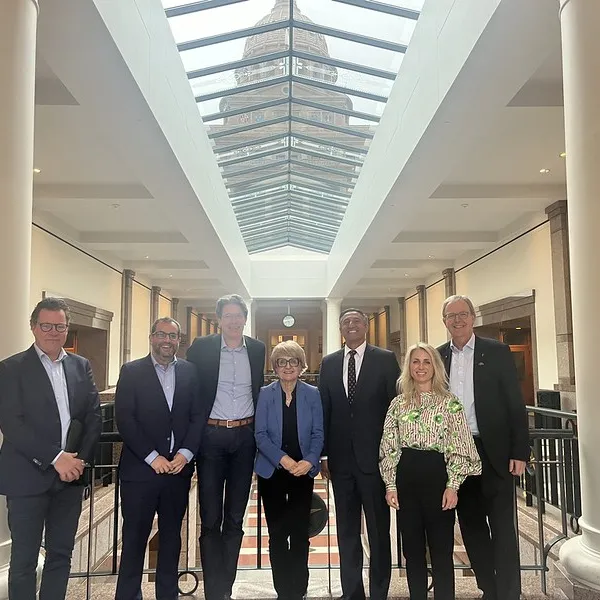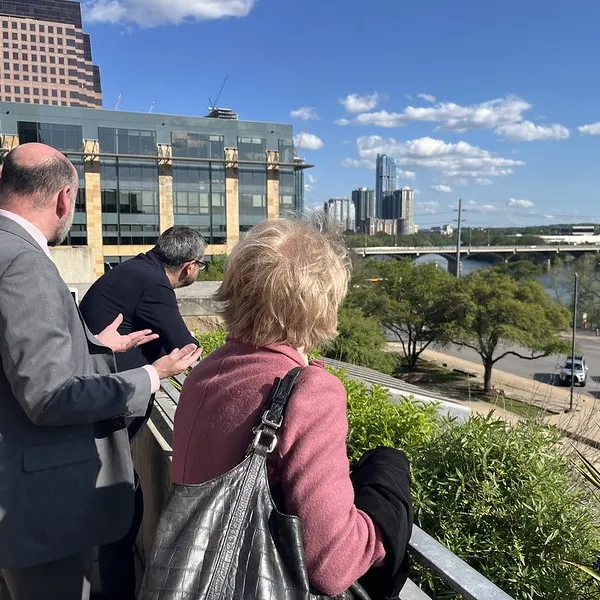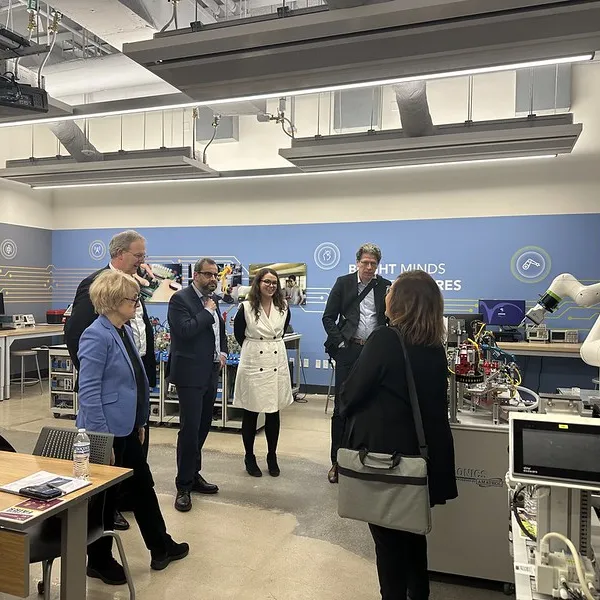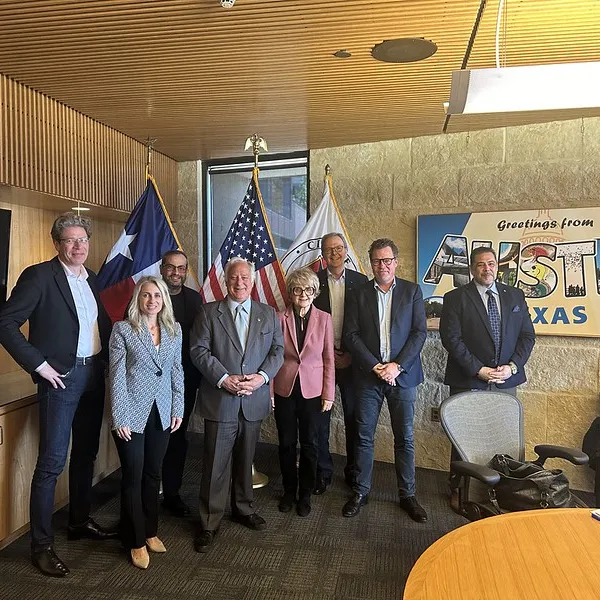Understanding a Culture of Innovation: Takeaways from the Transatlantic Tech Exchange in Austin
In March 2024, the German Marshall Fund of the United States organized the Transatlantic Tech Exchange, a weeklong study tour for a delegation of 12 high-ranking members of the European Parliament (MEPs) who have an interest in technology policy. The tour, convened with support from Stiftung Mercator, aimed to foster understanding of issues such as internet governance, emerging technologies such as artificial intelligence (AI), and multilateral transatlantic initiatives. Exchanges on these topics began in Washington, DC, where the delegation met with executive branch officials, members of Congress and their senior staff, and civil society leaders. Half the delegation then traveled to Sacramento, California, where they explored state-level policymaking. The other half visited Austin, Texas, where the agenda emphasized building a culture of innovation.
In Austin, the delegation explored the unique factors that make the city a thriving hub for technology startups as well as legacy industries such as semiconductors. Participants examined education, workforce, non-profit, and government initiatives that support this ecosystem.
The following three takeaways emerged from our conversations in Austin:
1. Cross-sector collaboration is key to Austin’s success as an innovation hub.
The delegation was surprised at the degree to which Austinites work together and reach beyond their silos, spanning the education, corporate, government, and non-profit sectors. Collaboration with industry is a linchpin of Austin’s workforce development programs. At Austin Community College (ACC), for example, faculty and administrators coordinate with the local semiconductor industry association and companies such as Samsung, Applied Materials, and Tesla to ensure that their curriculum prepares students for local manufacturing jobs. ACC faculty design their programs to be flexible so that they can respond to local demands. They meet with an industry advisory committee annually to receive guidance on their curriculum, competencies, and technologies. ACC repurposes equipment purchased for training incumbent workers of local companies for its broader education programs. Latinitas, a non-profit that runs after-school programs and summer camps on media and technology for 9–14-year-old girls, brings in partners from local companies such as IBM and GitLab so students can learn about the latest emerging technologies. Mentorship is a cornerstone of the mission of Austin’s top venture firms and incubators, including Capital Factory and Austin Technology Incubator.
2. Austin is figuring out how to balance growth and livability.
Driving into the city, the delegation immediately noticed the many cranes dotting the city skyline. Indeed, Austin was the fastest-growing metropolitan area in the country for twelve consecutive years, a streak that ended in 2022–2023 when it dropped to second behind Jacksonville, Florida. The technology sector has fueled much of this growth. The challenge Austin now faces is how to adapt to its expansion while maintaining the unique culture that made it an appealing destination. While not unique to Austin, the issues of livability, affordability, and sustainability are top of mind for many local leaders. Technology is both creating and solving some of these problems—manufacturing facilities and data centers use a significant amount of water, for example, but the city has also implemented smart water meters to ensure efficient management of utilities. There is room for greater exchange between Austin and European technology hubs on how to manage this balancing act.
3. A “Texas effect” is taking shape.
It may seem counterintuitive to suggest that a state that tends to champion individual freedom over regulation is a leader in technology policy, but Texas is aiming to become just that. The “Brussels effect”, which describes the EU’s global policy influence on issues such as privacy, is part of the common vernacular of the technology policy community, and the “California effect”, originally referring to environmental standards, has begun to encompass the state’s leadership on tech policy issues as well. But Texas is beginning to serve as a model of conservative state-level policymaking on technology issues including privacy, AI, and autonomous vehicles (AVs). Texas’ Data Privacy and Security Act is an example of how the state strives to have broad national impact. The law applies to businesses whose products and services are “consumed” by Texas residents, not just to companies based in Texas. This distinction means that the law could impact most companies that do business in the state, which, due to the size of Texas’ population and economy, could have national implications. Much of Texas’ AI regulation centers on government use of AI to promote efficiency. The state’s approach to AVs is similar in its appeal to conversative values of small government; it creates a legal foundation for the operation of AVs and limits its cities’ ability to regulate the technology. This framework makes Texas an appealing AV testing ground, as the industry is guaranteed consistent policy across the state without the risk of local bans.
The visit to Austin illuminated the disparate transatlantic perspectives on the interplay between “innovation” and “regulation” that drive US and EU lawmakers’ respective approaches to technology policy. Many American legislators see innovation and regulation as at odds with one another, with policymaking needing to strike a balance between these opposing forces. In Europe, on the other hand, policymakers see regulation as necessary to promote innovation by building trust in technology and ratifying the practices of responsible deployers of technology. In this view, regulation provides a level and predictable playing field for firms across the EU’s 27 diverse member-state economies.
Read more takeaways from the Transatlantic Tech Exchange’s visits to Washington and Sacramento.
This text reflects the views of the author only. The views expressed herein do not necessarily reflect those of the MEP delegation, GMF, or Stiftung Mercator.





